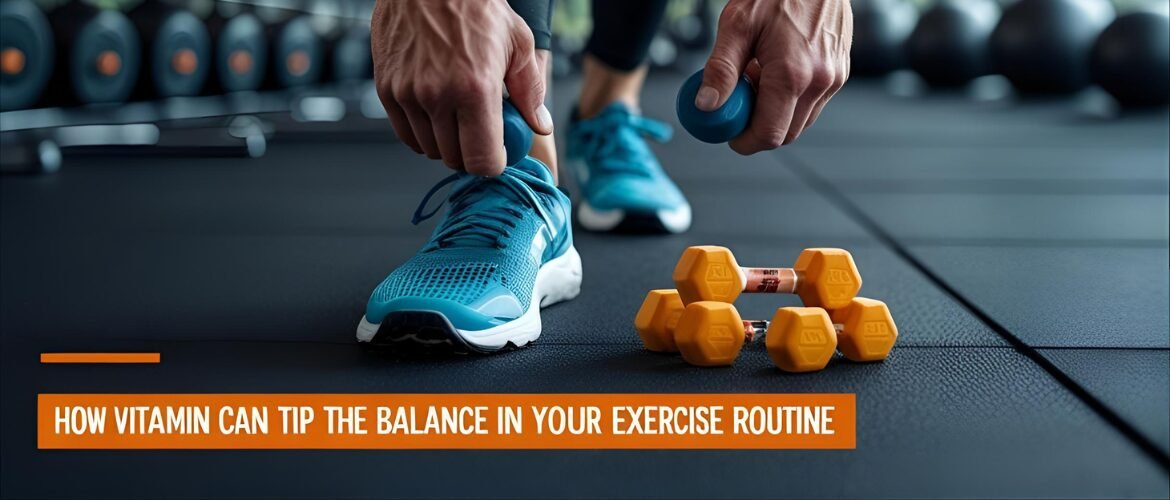No products in the cart.
How Vitamins Can Tip the Balance in Your Exercise Routine

Building strength and endurance isn’t just about reps and miles. Micronutrients—particularly vitamins—play a pivotal role in energy production, muscle function, immune support, and recovery. Fine-tuning your routine with targeted vitamin support can be the game-changer you’ve been looking for.
Why Vitamins Matter for Athletes
Vitamins act as coenzymes, cofactors, and antioxidants. They help:
- Convert food into usable energy
- Repair tissue damage from training stress
- Protect cells against oxidative free radicals
- Support healthy immune response to intense workouts
Even minor deficiencies can lead to fatigue, muscle cramps, or slower recovery, holding you back from peak performance.
Key Vitamins to Power Your Performance
| Vitamin | Primary Role | Food Sources |
|---|---|---|
| Vitamin B12 | Nervous system support, red blood cells | Meat, dairy, eggs |
| Vitamin D3 | Bone health, muscle function, immunity | Sunlight, fatty fish, eggs |
| Vitamin C | Collagen synthesis, antioxidant defense | Citrus, berries, bell peppers |
| Vitamin E | Cell membrane protection, recovery aid | Nuts, seeds, vegetable oils |
How These Vitamins Work in Your Body
Vitamin B12 helps shuttle oxygen to working muscles by supporting healthy red blood cell production. Without optimal B12 levels, you might notice early onset fatigue—even on moderate runs.
Vitamin D3 influences muscle contraction and strength. Research shows maintaining serum 25(OH)D levels above 30 ng/mL correlates with better power output and fewer injuries.
Vitamin C and E team up as antioxidants. They neutralize oxidative stress by donating electrons to free radicals:
This process protects muscle tissue and speeds up repair.
Recommended Dosages and Timing
- Morning with breakfast
- B-Complex: 1 capsule
- Vitamin D3: 1 softgel (5000 IU)
- Post-workout or midday
- Vitamin C: 1 tablet (1000 mg)
- Vitamin E: 1 softgel (400 IU)
Spacing fat-soluble vitamins (D3, E) alongside a meal containing healthy fats improves absorption, while water-soluble vitamins (B, C) can be taken on an empty stomach.
Practical Tips for Maximum Benefit
- Get a blood test every 6–12 months to monitor levels.
- Pair vitamin D supplementation with weight-bearing exercise for stronger bones.
- Rotate antioxidant timing: taking Vitamin C immediately post-workout can blunt necessary training adaptations if overused—stick to recommended dosages.
- Stay consistent. Deficiencies develop gradually; so does correction.
Conclusion
Integrating targeted vitamin support transforms your exercise routine from good to exceptional. By covering energy metabolism, muscle function, and recovery, these micronutrients reduce downtime and unlock higher performance. Arm yourself with the right supplements, fine-tune your timing, and watch how even small nutritional tweaks can deliver big gains.
Start your wellness journey today — Visit Unike Nutra Now
Follow us
Facebook – https://www.facebook.com/profile.php?id=61567462823245
Instagram – https://www.instagram.com/unikenutra/
Twitter – https://x.com/Unikenutra
